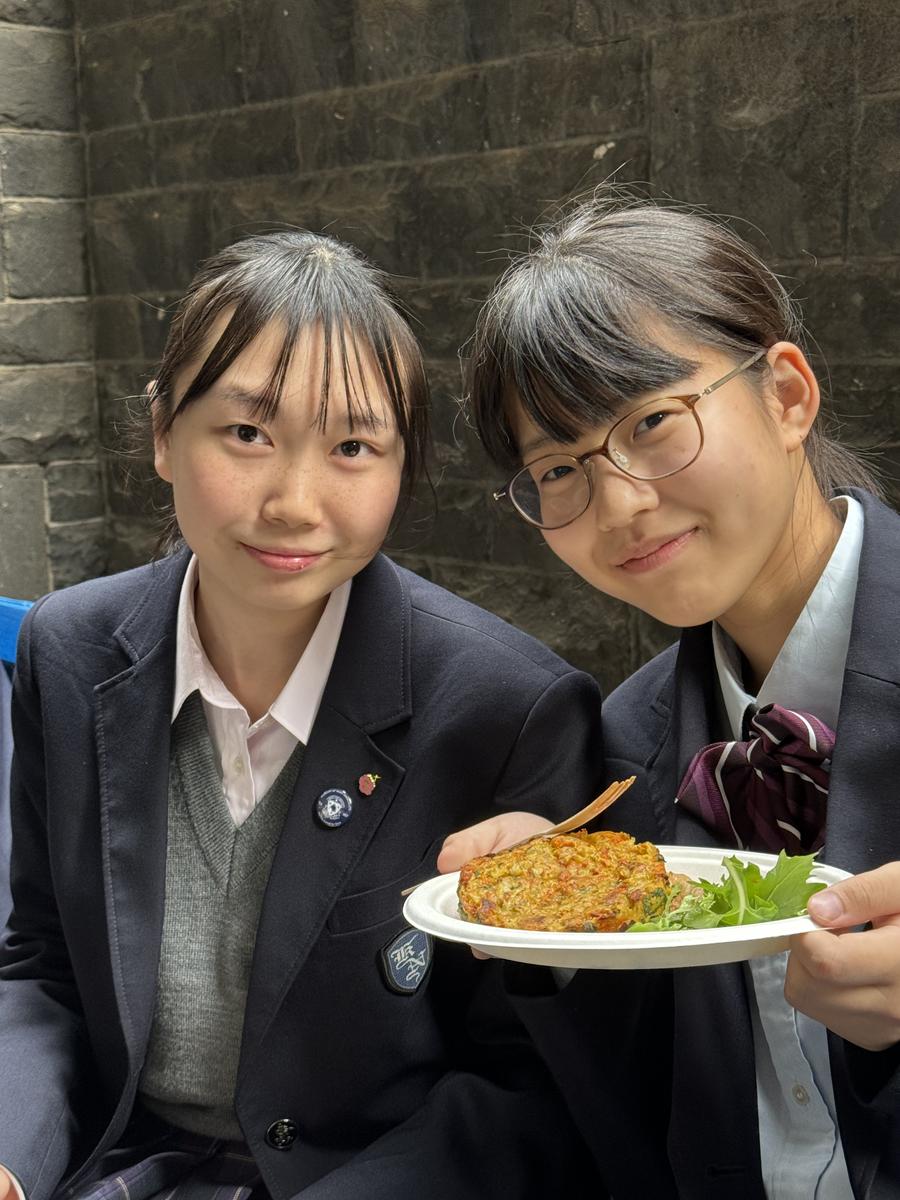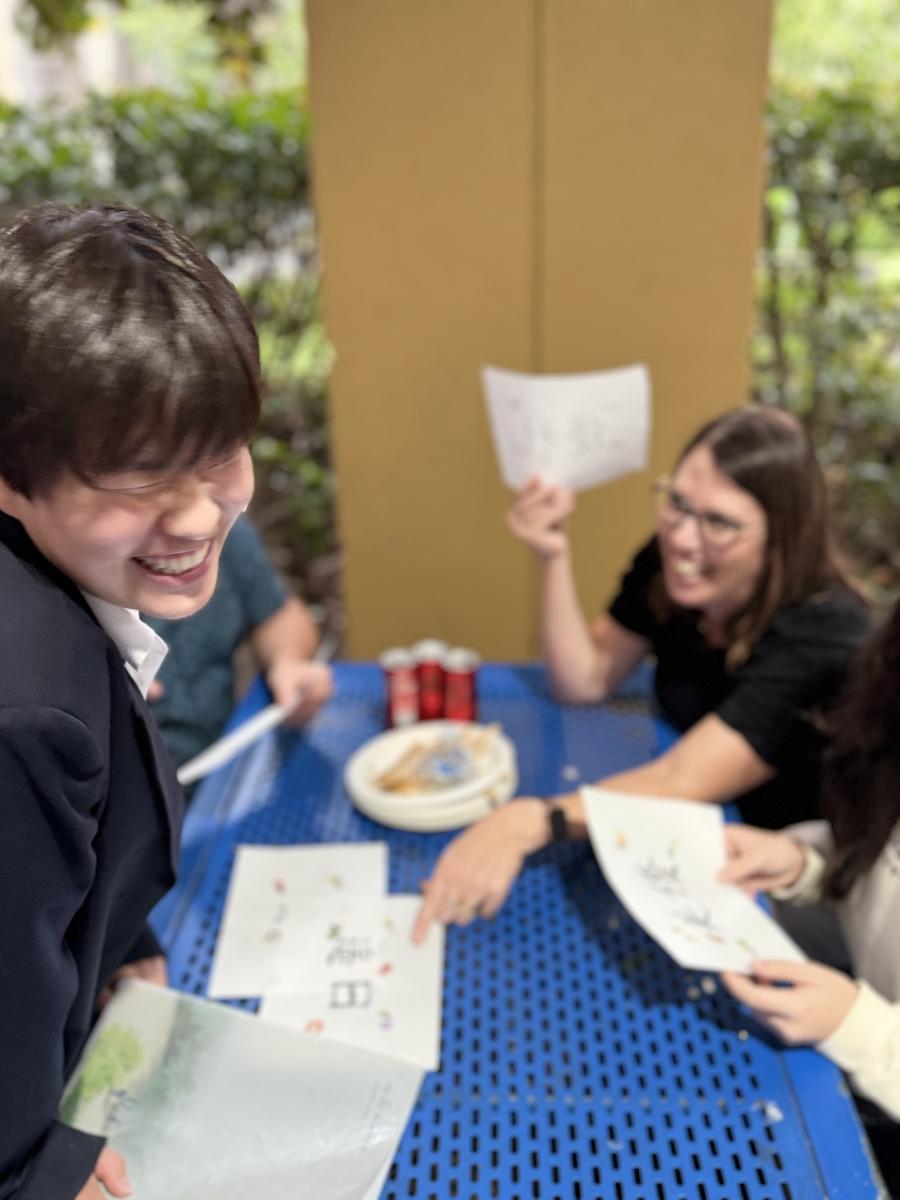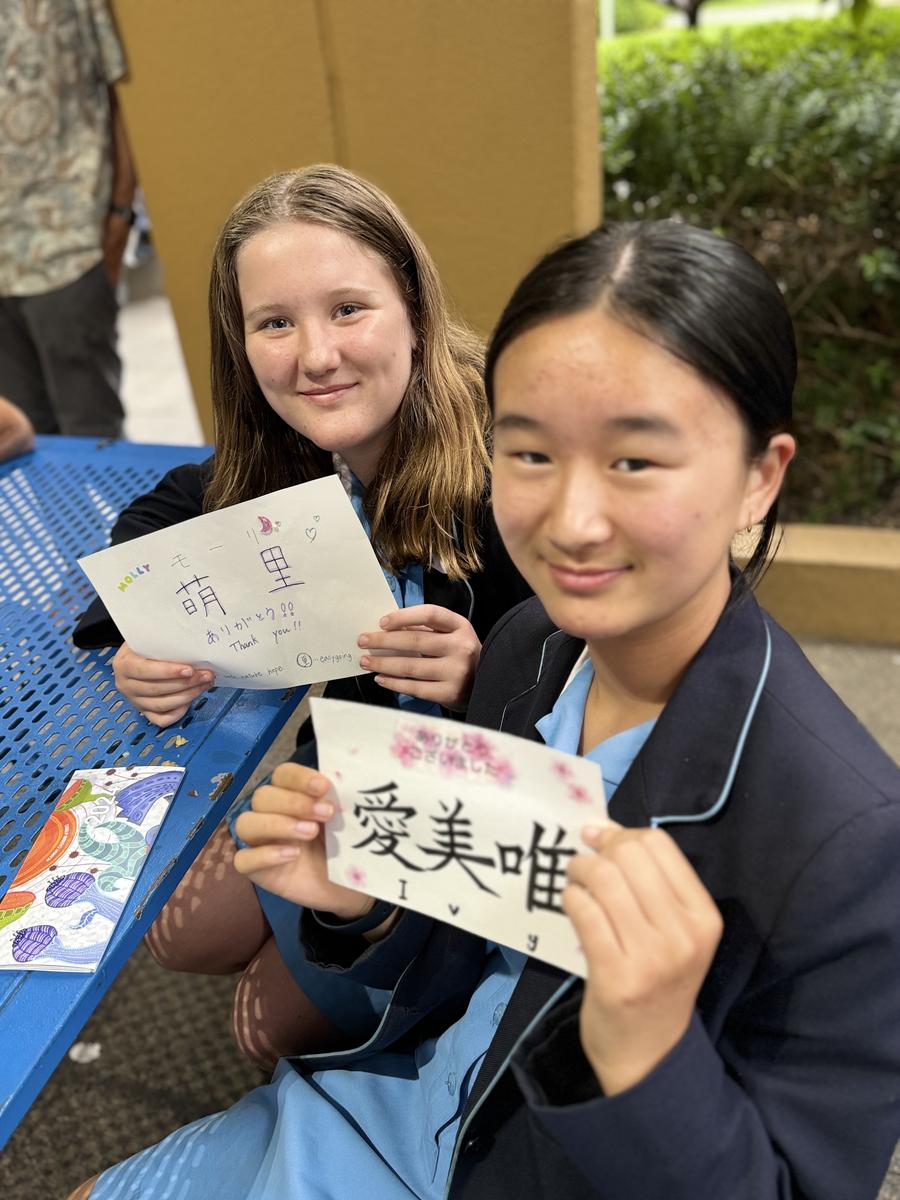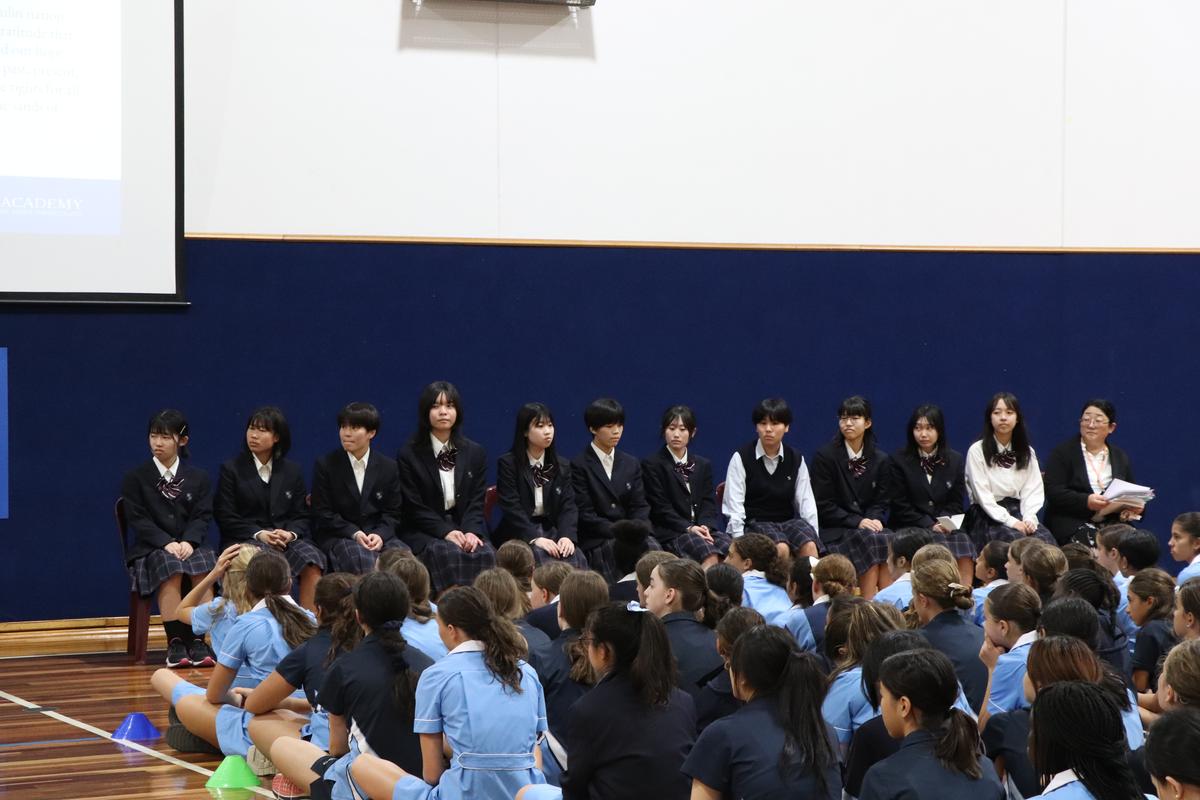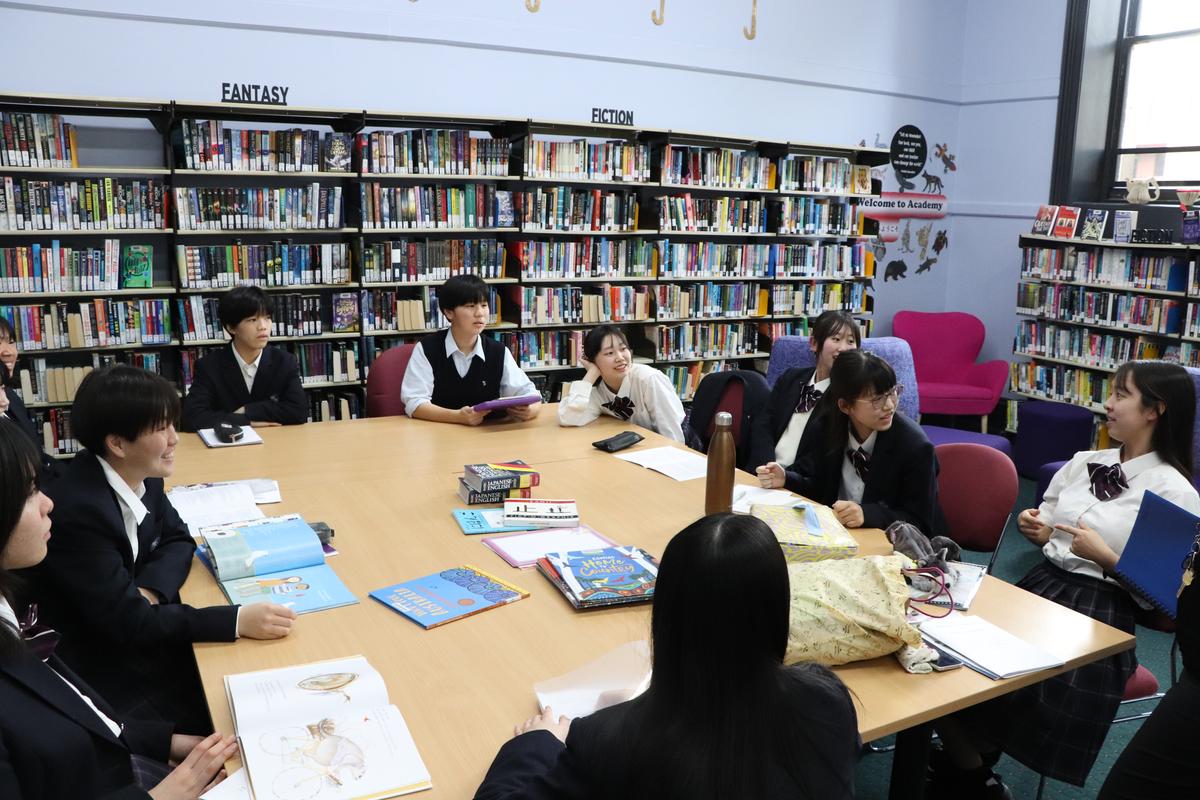Across Campus
Clubs, Excursions

Across Campus
Clubs, Excursions
The first Women’s Wellbeing Week was held from March 4th and concluded on International Women’s Day on Friday 8th March. The week was full of activities that empowered and focused on women. Thank you to everyone for their participation in the week from the Pilates classes, riding a bike to blend a smoothie, guest speakers from Flourish Journey and Danielle Carpenter from the Peter Mac Centre. Everyone’s enthusiasm for the ‘March for Women’ was incredible where we raised $880 as a school community. Thank you to the Student Leaders and Ms Jodie Muller for all their help during the week.
Ms Tanya Vajda
Health Sciences Learning Leader
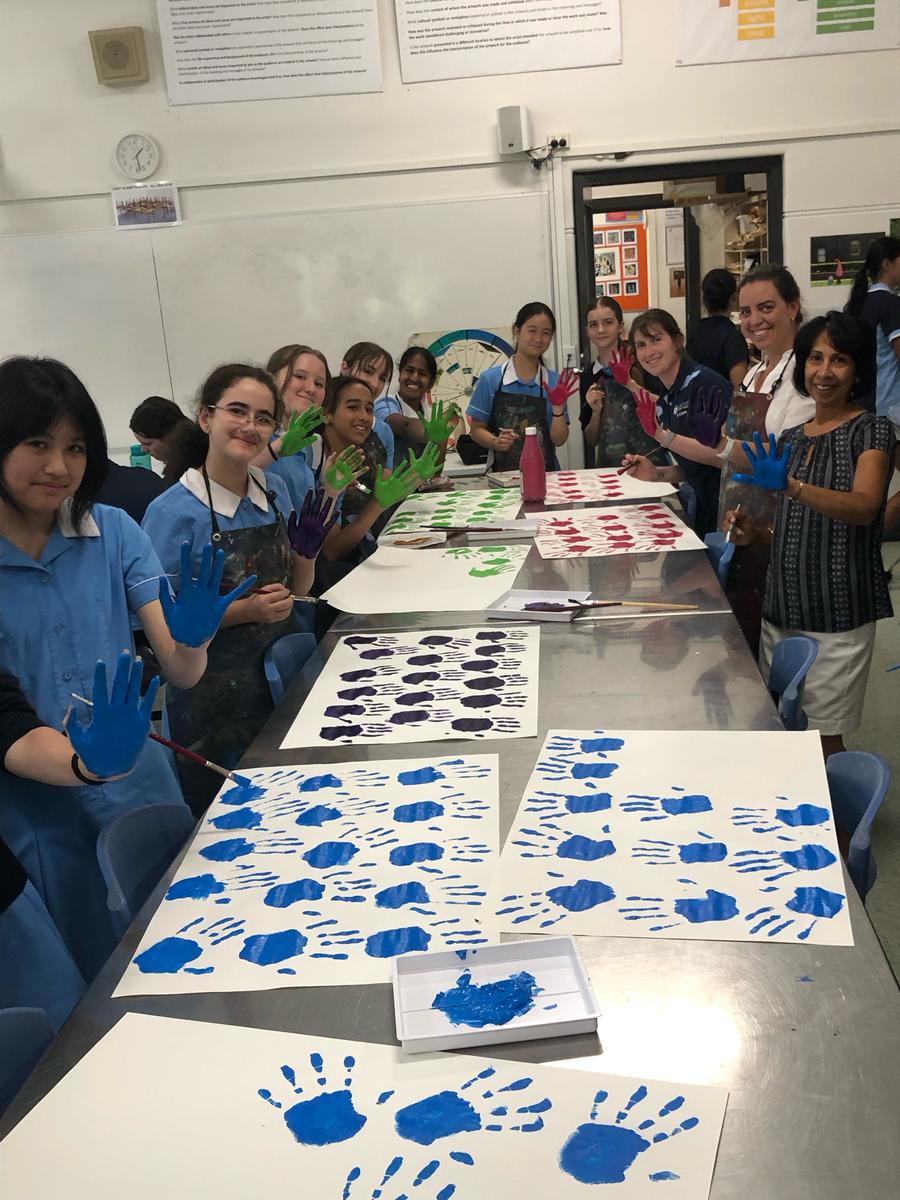

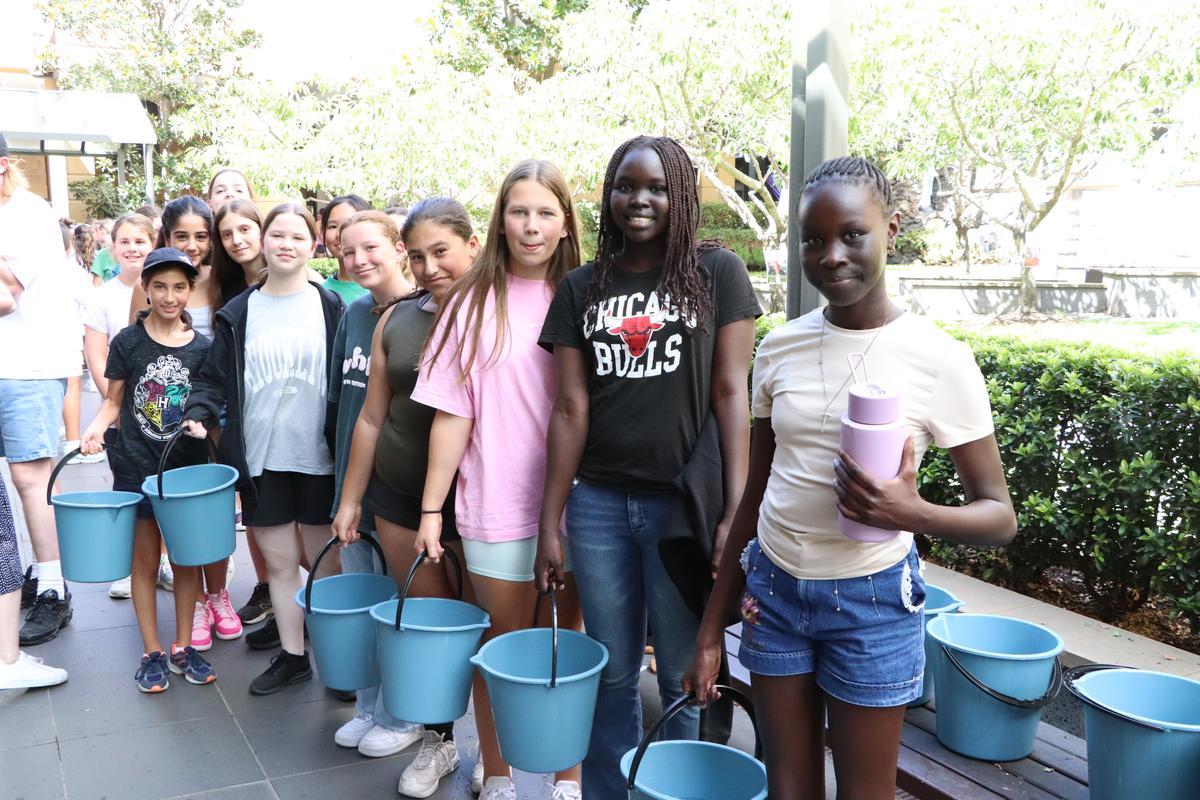

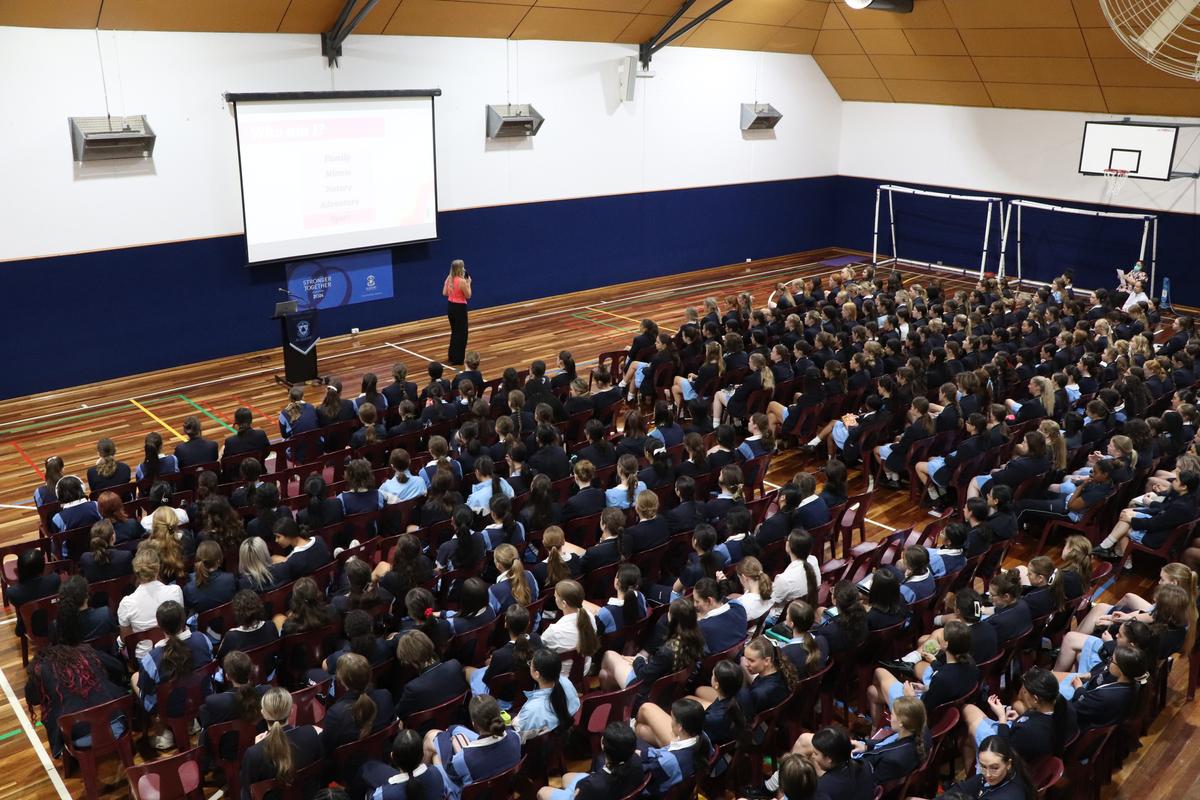
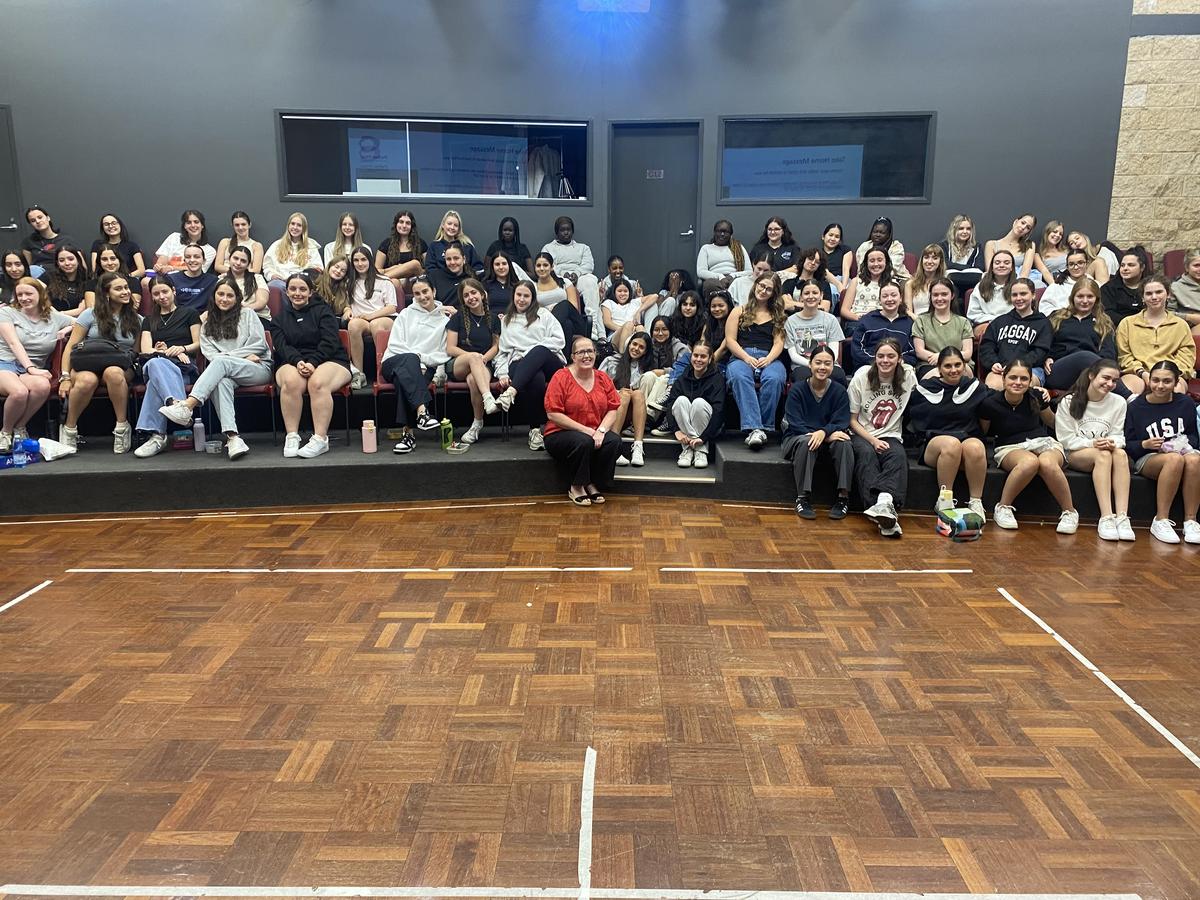












Our Earth at Academy group has been busy getting the recycling bins in place. Our hallways are now fitted with three bin options to help us make better choices with our rubbish. We have the red bin for plastic and food, the yellow bins for cans and bottles and the blue bin for paper and cardboard. It is Earth at Academy's hope that we can use these bins appropriately and help reduce the amount of rubbish our school produces.
Ms Fiona Tassone
Earth at Academy Leader
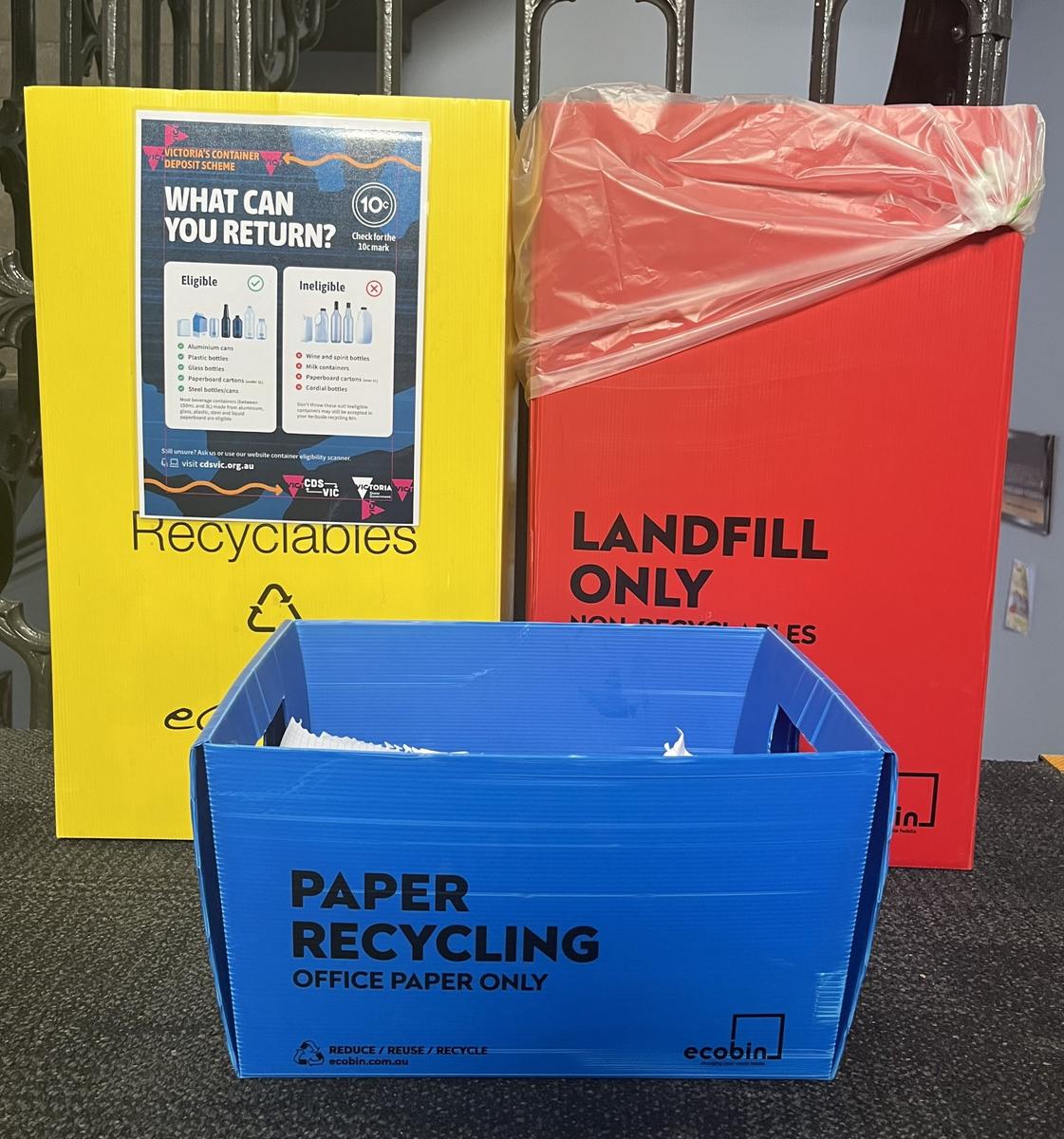

Women’s Wellbeing Week
The MRC celebrated Women’s Wellbeing Week with wonderful displays and resources for the students to become fully immersed in the week. The outside area was used to promote inspiring women and was visited by many classes. During the week, many Health classes came and wrote about inspiring women in their lives and learnt what being “inspirational” truly means. Our “Radical Women” collection was highlighted and displayed showing the vast array of resources we have available in the promotion of amazing women we have in our world. 7 Ways to Support Australian Teens in Reading for Pleasure.
Following the release of a new research report into Australian teen readers from Deakin University, Australia Reads offers seven research-backed recommendations for engaging teens in reading for pleasure.
1. Support teens to find their next great read – whatever it is!
Many teens struggle to discover suitable and exciting reading material, with 44% of non-readers (or ‘Book Abstainers’ as the Deakin University report identifies) reporting they find it hard to find anything good to read. When seeking to support teen reading, allow teens to choose their own reading material. While book gifting and assigned reading have a place in encouraging reading in teens, they can provoke a spirit of resistance if teens feel like they are being told to read something that does not take their tastes and preferences into account. Remember, all reading is good reading! Whether it’s graphic novels, romance, non-fiction or fantasy, adopting a non-judgemental approach to teen’s reading tastes will help foster a positive, independent attitude towards reading for pleasure.
2. Invest in school libraries and librarians
School libraries have a positive influence on reading behaviours – providing access, community, and recommendations for teen readers. Libraries need to be funded in schools across Australia, with dedicated and knowledgeable librarian staff, and suitable and appealing options for teenage readers. School librarians are an amazing resource for book recommendations, however are currently under-utilised by teens, with 60% citing they do not go to librarians for recommendations. The Deakin University report also shows a drop off in library engagement as students get older. Keeping teens engaged with the library space through their schooling may help maintain a positive and regular relationship with reading.
3. Get parents reading
For parents wanting to support teen reading, reading yourself – and having books in the home – is a good place to start! Teens who see reading modelled in their home are more likely to read and report reading more regularly than teens who don’t see the adults in their lives reading. Teens identified by the report as regular readers had a higher percentage of parents (both mothers and fathers) who were regular or weekly readers. Teens who read less think that their parents also read less. International research also shows that children who were exposed to more storybooks showed a greater inclination to read for pleasure and in turn, had more advanced literacy skills as adolescents[1], and that having books in the home in adolescence has a positive direct effect on literacy, numeracy, and information and communications technology skills later in life[2].
4. Meet teens where they are
Reading and screen time shouldn’t be seen as in opposition to each other. Reading the book of a movie, TV show or game they liked is the third most popular way teens find books to read, with 55% of teen readers using this discovery strategy. The popularity of BookTok and Bookstagram also shows the incredible power of social media to support reading behaviour, through aiding with book discovery and forming online communities.
5. Make reading social
The report shows that regular readers often have peers who are also engaged in reading. 57% of teens cited recommendations from friends as the main way they discover their next best read. Making space for teens to talk with both peers and parents about books, and sharing recommendations, is a positive way to grow reading engagement and create a culture of reading.
6. Carve out time and space for teens to read
Teens lead busy lives – with school, social and extracurricular activities all taking up time in young people’s packed schedules. Finding the time and space to read for pleasure can be difficult for teens. Schools can support teen reading by making time for independent reading in the classroom. Parents can also integrate a reading culture into the home, by making time in the family schedule for everyone to read.
7. Embrace the holiday down time
The Deakin University report shows that 45% of teens who read for pleasure report reading more in the school holidays. Driving more activity and promotion around this time – whether through library programs, publisher promotions, or in the home environment – may help engage more teens in reading. Happy Reading!
Ms Anne Chowne & Ms Cathy Bennett
MRC Learning Leaders
This year's debating season has kicked off! Though there were some disappointments due to one opposition team forfeiting and another debate that was only considered a technical win due to a missing adjudicator, our speechmakers nevertheless impressed with their preparation, thoughtful arguments, and confidence. In particular, I'd like to congratulate Charlotte McKay, Eloise Robinson, and Lucy Ryan who won their debate arguing that the Victorian government should incentivise people to move to regional Victoria.
Well done to all our speakers. A promising start to what is sure to be a fantastic season of debating.
Mr Andrew McLeod
Public Speaking Coordinator
Did you know that we have students from 23 countries attend Academy of Mary Immaculate. Most students were obviously born in Australia, however the largest groups at Academy come from the Philippines, New Zealand, Ireland, Ukraine, UK, USA and Vietnam. This is followed closely by Bolivia, Ethiopia and India.
Our community also speaks 36 different languages! The languages most spoke by our community are English, Vietnamese, and Dinka! Which one can you speak? Ask a friend if they speak another language and let’s get the conversation of diversity started.


Wednesday 6 March
Excerpt of speech from Clare Martin, Alumnae - Class of 2014
And if there’s any secret I have, it’s this: it’s when I’m helping to empower others, is actually when I feel most empowered myself.
On some days, lots of them at the moment, that looks like my volunteering - both on the ground supporting people and working strategically on state or national committees to support the sustainability of an organisation I believe in so deeply. On other days, it looks like a hot chocolate with the new grad at work or reminding my godchildren that I love them, that I’ll always be in their corner.
On all of the days, I feel strongest and most confident in myself when I’m using my skill sets, embracing all of my story + experiences, when I choose to live in line with my values and am little by little helping to create a world where others can feel empowered to do the same.
I was at a dinner celebrating Vinnies 170 years in Australia earlier this week, and a guest used an analogy when talking about living in up and down times, that I want to extend and share with you. That maybe you can use to look at the world or wherever you’re at today.
They spoke of the night sky. It’s full or darkness, but equally it’s full of stars. Some nights, it’s cloudy and we can’t always see the stars. But they’re still there, shining all the same, in a way that others can see when we can’t. And perhaps, even lighting a path for others in places we don’t yet know. And when the cloud moves, we’ll get to see their light again ourselves.
We have the choice, when we look out, to look for the stars in the darkness and to see the hope they reflect to our world.
And so my wish for you, this International Women’s Day week, is that you can be the stars in the darkness of the night sky. To be them for others, to see them in the people around you, and to know the stars that exist in you.
Thank you.
Our recent exchange program between Nishiyama High School and the Academy of Mary Immaculate was a great success! The exchange provided a valuable learning and cultural experience for all involved and it was lovely to resume the long-standing relationship between the two schools.
Students from both schools had the opportunity to immerse themselves in a new environment, learn about different cultures, traditions, and ways of life as well as forming new friendships. There were lots of tearful goodbyes at the end of their stay! We wish the two students who have opted to stay in Melbourne for a longer period all the best for the remainder of their stay.
We are especially grateful to the generous host families: MacNamara, Sheenan, Goddard, Delbridge, Ream, Adams, Pentony, Gowans, Zaba, Tull, Berryman, Smith, O’Toole, Ginnane and Clifford. Opening your home to host is a vital part of the exchange program and these families play a crucial role in welcoming our guests.
We look forward to our trip to Japan in 2025 and are excited to continue building on the connections and friendships established during this exchange, further strengthening the bond between our schools.
Once again, thank you to everyone involved for making this exchange such a memorable and enriching experience.
Ms Natalie Dickson
Languages Learning Leader

